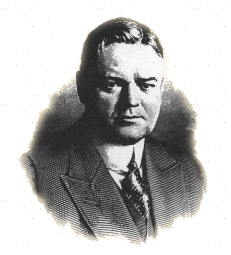Now more than five decades old, Herbert Hoover’s 1959 statement to the Board of Trustees of Stanford University on the purpose and scope of the Hoover Institution continues to guide and define its mission in the twenty-first century:
“This Institution supports the Constitution of the United States, its Bill of Rights and its method ofrepresentative government. Both our social and economic systems are based on private enterprisefrom which springs initiative and ingenuity…. Ours is a system where the Federal Government should undertake no governmental, social or economic action, except where local government, or the people, cannot undertake it for themselves…. The overall mission of this Institution is, from its records, to recall the voice of experience against the making of war, and by the study of these records and their publication, to recall man’s endeavors to make and preserve peace, and to sustain for America the safeguards of the American way of life. This Institution is not, and must not be, a mere library. But with these purposes as its goal, the Institution itself must constantly and dynamically point the road topeace, to personal freedom, and to the safeguards of the American system.”
The principles of individual, economic, and political freedom; private enterprise; and representative government were fundamental to the vision of the Institution’s founder. By collecting knowledge, generating ideas, and disseminating both, the Institution seeks to secure and safeguard peace, improve the human condition, and limit government intrusion into the lives of individuals.

